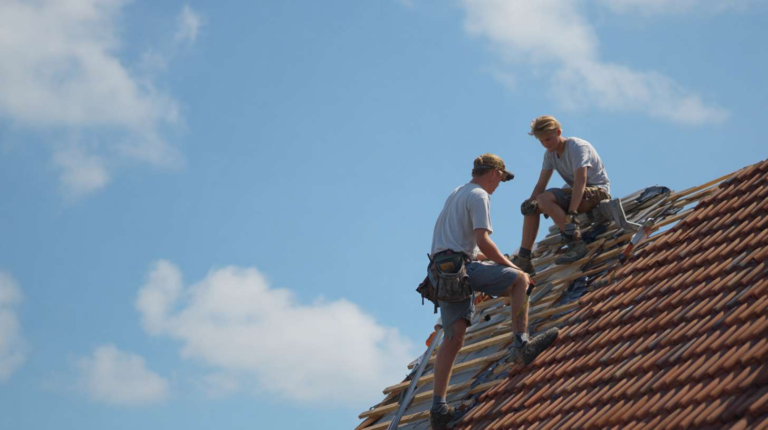Professional Deck on Flat Roof Installation & Repair Services
Look, I've been doing flat roofs in Queens for over two decades, and the number of homeowners asking about putting a deck on their flat roof has absolutely exploded in the last few years. Makes sense - with real estate prices through the roof (pun intended), every square foot of usable space counts. But here's the thing about deck installation on flat roofs: it's not just slapping some boards down and calling it a day.
The cost for a professional deck on flat roof installation typically runs between $15-35 per square foot, depending on materials and complexity. A basic 200 square foot deck averages around $4,500-$7,000 including proper structural support and waterproofing.
Understanding Deck Over Flat Roof Requirements
First thing you need to know - not every flat roof can handle a deck. I learned this the hard way back in '03 when I was less experienced and agreed to install a deck on a building in Astoria without properly evaluating the structural capacity. The roof started showing stress cracks within six months. Never again.
Your flat roof needs to support at least 40 pounds per square foot for a basic deck, and that's before you add furniture, people, or that hot tub you're secretly planning. Most residential flat roofs in Queens are designed for 20-30 PSF, which means structural reinforcement is usually necessary.
Here's what I evaluate during every deck consultation:
- Current roof membrane condition and age
- Structural load capacity of the building
- Drainage patterns and water management
- Building code compliance requirements
- Access routes for materials and construction
How to Put a Deck on a Flat Roof: The Professional Process
So how do you actually make this happen? The process isn't complicated, but it requires precision and experience. I've seen too many DIY disasters where homeowners thought they could figure this out over a weekend.
The membrane protection is absolutely critical. We use a specialized sleeper system that distributes weight evenly while protecting the waterproofing below. I get my materials from Beacon Supply on Northern Boulevard - they stock the commercial-grade components we need for Queens weather conditions.
Step one involves installing a protective barrier over your existing roof membrane. Then we add structural sleepers - essentially treated lumber or composite beams that create the framework. The spacing depends on your decking material, but typically we go 16 inches on center for composite and 12 inches for natural wood.
Waterproofing and Drainage Considerations
Here's where most contractors mess up, and frankly, it drives me crazy. They focus on the deck construction but ignore what happens to water management. Your flat roof was designed with specific drainage patterns, and adding a deck changes everything.
We always maintain proper drainage slopes underneath the deck structure. Water needs somewhere to go, and trust me, it will find a way. The salt air from Flushing Bay means we're dealing with accelerated corrosion too, so all fasteners and hardware have to be marine-grade stainless steel or aluminum.
My foreman Carlos always jokes that we spend more time planning the drainage than building the actual deck. He's not wrong. A properly designed deck over flat roof system includes:
- Membrane protection layers
- Strategic drainage channels
- Waterproof flashing at all penetrations
- Proper slope maintenance for water runoff
- Access panels for future roof maintenance
Material Selection for Queens Weather
Let me tell you something about materials - what works in Arizona doesn't work here. We get freezing winters, humid summers, and everything in between. I've seen beautiful cedar decks turn into maintenance nightmares because the owners didn't understand our climate.
Composite decking performs best in our conditions. Brands like Trex or TimberTech handle the temperature swings without warping or cracking. Natural wood looks great initially but requires annual maintenance, and with roof access being what it is, most homeowners skip the upkeep.
For the structural components, we use pressure-treated lumber rated for ground contact, even though it's going on a roof. The humidity and potential water exposure demand that level of protection.
Aluminum railings are my go-to recommendation over steel or wood. They don't rust, require minimal maintenance, and meet building codes for height and spacing requirements.
Permits and Code Compliance in Queens
Oh, and another thing about permits - you absolutely need them. The Department of Buildings in Queens doesn't mess around with structural modifications. I've seen homeowners get massive fines trying to fly under the radar.
A deck installation typically requires both a building permit and potentially a structural engineering report, depending on the load requirements. The application process takes 4-6 weeks on average, so plan accordingly.
The inspection process involves multiple checkpoints: structural framing, waterproofing installation, and final construction. Each phase needs sign-off before proceeding. It's annoying but necessary - I've seen what happens when corners get cut.
Cost Breakdown and Investment Value
Let's talk real numbers. A professionally installed deck on flat roof system breaks down like this:
- Structural reinforcement: $8-15 per square foot
- Membrane protection and sleeper system: $5-8 per square foot
- Decking materials: $8-20 per square foot
- Railings and safety features: $25-40 per linear foot
- Permits and engineering: $1,500-3,000 flat fee
So for a typical 200 square foot deck with basic railings, you're looking at $6,000-$12,000 total. That might seem steep, but consider the alternative - a poorly installed deck can damage your roof membrane, leading to thousands in water damage repairs.
The return on investment varies by neighborhood, but in areas like Long Island City or Astoria, a quality roof deck can add $15,000-$25,000 to property value. Not bad for usable outdoor space in one of the most expensive real estate markets in the country.
Common Mistakes to Avoid
Look, I don't care what other contractors say about cutting costs - there are certain things you can't compromise on. I've spent too many hours fixing other people's mistakes to stay quiet about this.
The biggest mistake is inadequate structural support. I can't tell you how many times I've been called to repair decks that were built directly on the roof membrane without proper load distribution. The membrane gets punctured, water gets in, and suddenly you're dealing with interior damage worth ten times what proper installation would have cost.
Another common error is ignoring thermal expansion. Materials expand and contract with temperature changes, and without proper expansion joints, your deck will buckle or separate from the building. We always include expansion gaps at building connections and every 20 feet of continuous decking.
DIY installation is tempting, especially with YouTube tutorials making everything look simple. But roof work requires specific knowledge about waterproofing, structural loads, and building codes. The liability alone should make you think twice - if something goes wrong and damages neighboring properties, your insurance might not cover DIY work that wasn't properly permitted.
Maintenance and Long-term Care
A well-built deck on flat roof should last 15-20 years with minimal maintenance. The key is annual inspections and prompt attention to small issues before they become big problems.
We recommend checking drainage twice yearly - spring and fall. Leaves and debris can clog the system, causing water to pool where it shouldn't. Also inspect all fasteners and connections for loosening or corrosion.
The composite decking needs occasional cleaning with mild detergent and water. Avoid pressure washing - it can force water into connections and cause problems. A regular garden hose and scrub brush work fine for most cleaning needs.
Every five years, have the underlying roof membrane inspected by a professional. The deck installation should include access panels that allow us to check the waterproofing without dismantling the entire structure.
Why Choose Professional Installation
After installing hundreds of roof decks throughout Queens, from Jackson Heights to Bayside, I've seen what happens when corners get cut. The initial savings aren't worth the long-term headaches.
Professional installation includes proper engineering, quality materials, and warranty protection. We carry full liability insurance and guarantee our work for five years. If there's a problem, we fix it - no questions asked.
Our team understands local building codes, weather patterns, and the specific challenges of working on Queens rooftops. We've dealt with everything from century-old buildings in Flushing to modern high-rises in Long Island City.
The investment in professional installation pays for itself through proper execution the first time, avoiding costly repairs, and ensuring your deck adds value rather than creating liability.
If you're considering a deck over your flat roof, give us a call at (917) 994-7618. We'll provide a detailed assessment of your roof's capacity, explain your options, and deliver a realistic timeline and cost estimate. No pressure, just honest advice from someone who's been doing this work in Queens for over twenty years.


